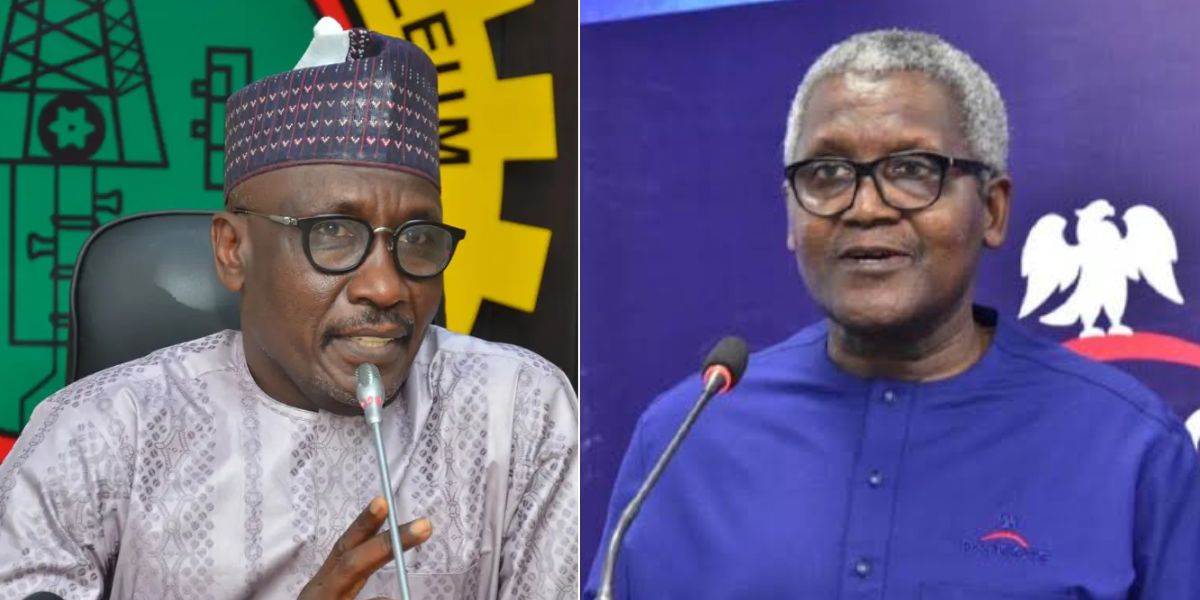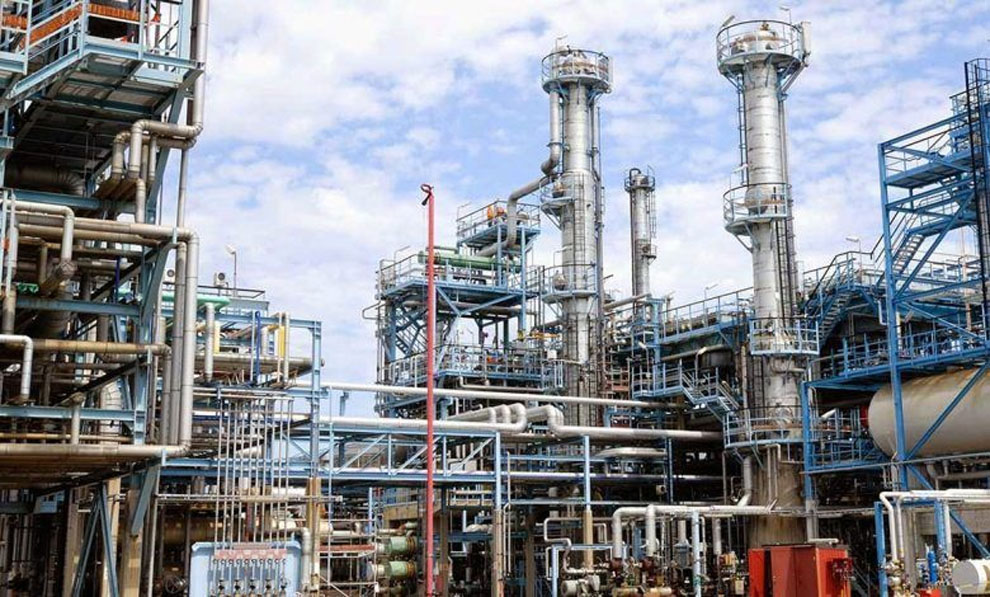Business
Fuel scarcity lingers as NNPC delays Dangote petrol supply, independent marketers ready to buy

Fuel scarcity lingers as NNPC delays Dangote petrol supply, independent marketers ready to buy
Going by the projection of Alhaji Aliko Dangote, owner of the brand new Dagote Refinery, sufficient petrol from that facility should have been delivered at various filling stations across the country since last Thursday.
“Our PMS can be in filling stations within the next 48 hours, depending on NNPCL,” he said.
This was expected to douse tension and ease the prolonged fuel scarcity being experienced nationwide.
Dangote who spoke in Lagos last Tuesday with a promise of commencing the supply of premium motor spirit (PMS) otherwise known as petrol within 48 hours however gave a proviso – that the Nigerian National Petroleum Company Limited would pick up the product from his refinery at a price agreeable to the two parties.
Dangote could not disclose the pump price of the product, saying the Federal Executive Council would determine how much he would a litre of petrol.
But five days after Dangote spoke at the launch of his refinery’s petrol into the market, the nation still awaits the promised PMS due to delay by the NNPC.
The NNPC, which had earlier indicated its willingness to buy off the Dangote fuel and distribute to marketers as it currently does has however made a U-turn.
It said in Saturday that it would only pick up the fuel if found to be cheaper than that of international market.
“NNPC Ltd has no desire or intention to become the distributor for any entity in a free market environment, and therefore, the notion of becoming a sole off-taker does not arise,” it added.
While no concrete agreement has been reached between NNPC and Dangote on the issue, the Independent Petroleum Marketers Association of Nigeria on Saturday said it would buy PMS from Dangote at any price, even if the NNPC refused to buy.
A report by Sunday PUNCH quoted National President of the association, Abubakar Maigandi, as saying the independent marketers were ready to patronise Dangote.
He said, “Whatever the case, if Dangote starts selling his product, we are going to patronise him; if at all he wants to do business with us.
“We are ready to buy at any price because the NNPC is saying that they don’t want to involve themselves in fixing prices.
“So, at any price that he wants to sell, we are ready to buy and discharge and sell at a good price.”
Members of IPMAN are said to own about 80 per cent of the filling stations in Nigeria.
Meanwhile, fuel scarcity has not abated nationwide despite the promise by the Minister of State for Petroleum Resources (oil), Heineken Lokpobiri, that petrol would be made available by this weekend.
He said after a meeting with Vice-President Kashim Shettima in Abuja on the fuel crisis, “Between now and the weekend, there will be availability of products across the length and breadth of the country.
“We believe that by the time there is availability of products across the country, the price itself will stabilise.”
Lokpobiri urged Nigerians not to resort to panic buying, stressing that there is sufficient petroleum product to meet the nation’s demand.
Queues have remained at few filling stations dispensing petrol to motorists as many people spend long hours waiting for their turn.
While petrol is being sold between N855 and N920 per litre by the NNPC and major marketers, independent marketers are selling between N1,000 and N1,200.
The price is expectedly higher at the black market. In Lagos, a five-litre of petrol is offered between N7,000 and N8,000.
Business
Naira exchanges N1,650/$ in parallel market

Naira exchanges N1,650/$ in parallel market
Yesterday, the Naira appreciated N1,650 per dollar in the parallel market, compared to N1,655 on Monday.
Similarly, the Naira appreciated to N1,535 per dollar in the official foreign exchange market.
Data published by the Central Bank of Nigeria, CBN, showed that the exchange rate for the Nigerian Foreign Exchange Market (NFEM) fell to N1,535 per dollar from N1,537 per dollar on Monday, indicating N2 appreciation for the naira.
READ ALSO:
- Tension as Anambra community union asks monarch to stop Ofala Festival
- Exchange rate ends 2024 at N1,535/$1, marking a 40.9% depreciation
- Lagos govt clears traders from rail tracks at Bolade, Oshodi
Consequently, the margin between the parallel market and NFEM rate narrowed to N115 per dollar from N118 per dollar on Monday.
Naira exchanges N1,650/$ in parallel market
Business
Exchange rate ends 2024 at N1,535/$1, marking a 40.9% depreciation

Exchange rate ends 2024 at N1,535/$1, marking a 40.9% depreciation
The exchange rate between the naira and the dollar ended the year at N1,535/$1 representing a 40.9% depreciation for 2024.
The official exchange rate between the naira and dollar closed in 2023 at N907.11/$1 thus depreciating by 40.9% for the year which compares to a 49.1% devaluation at the end of 2023.
READ ALSO:
- Lagos govt clears traders from rail tracks at Bolade, Oshodi
- Four countries that won’t celebrate New Year
- Social media abuzz over Fayose claim of N50m donation to VeryDarkMan’s NGO
Nigeria introduced several foreign exchange policies in 2024 as the central bank expanded on market-friendly forex policies to attract foreign investors.
Meanwhile, on the parallel market where the exchange rate is sold unofficially, the naira exchanged for N1,660 to the dollar when compared to N1,215/$ according to Nairametrics tracking records. This represents a 26.8% depreciation.
Exchange rate ends 2024 at N1,535/$1, marking a 40.9% depreciation
Business
Warri refinery: Marketers hopeful of further petrol price drop

Warri refinery: Marketers hopeful of further petrol price drop
There was excitement on Monday as the Warri Refining and Petrochemical Company (WRPC) commenced partial production.
This is coming after nearly a decade of dormancy as the 125,000 barrels per day refinery was confirmed to be working at 60 per cent capacity, according to the Nigerian National Petroleum Company Limited (NNPCL).
The refinery, inactive since 2015 due to prolonged repairs, reportedly began refining activities last Saturday at its Area 1 plant, where crude oil was successfully pumped into the system.
This was coming about a month after the commencement of operations at the 60,000-barrel-per-day-old Port Harcourt Refinery.
The NNPCL Group Chief Executive Officer, Mele Kyari, announced the resumption of operation at the Warri Refinery during a tour of the facility on Monday.
Kyari was seen in a video posted by Channels TV addressing a tour team, which included the Chief Executive Officer of the Nigerian Midstream and Downstream Petroleum Regulatory Authority, Farouk Ahmed.
READ ALSO:
- Catholic priest sentenced to 11 years for criticising his president
- Warri refinery now operational, doing 125,000bpd – NNPCL boss
- Kwankwaso says no power-sharing agreement with Atiku, Obi
Earlier, Kyari explained that the inspection aimed to show Nigerians the level of work completed so far.
He said though the repairs on the facility were not 100 per cent complete, operations had commenced.
He said, “We are taking you through our plant. This plant is running. Although it is not 100 per cent complete, we are still in the process. Many people think these things are not real. They think real things are not possible in this country. We want you to see that this is real.”
With the addition of Warri Refinery, Nigeria’s refining capacity has further increased with marketers anticipating a further reduction in price of premium motor spirit (PMS).
The 650,000-barrel Dangote Refinery has commenced production in addition to the Port Harcourt Refinery with a total capacity of 210,000 barrels per day (bpd) comprising 60,000 bpd for the old plant and 150,000 bpd for the new plant.
It’s good for business, prices may reduce – Marketers
Major Energy Marketers’ Association of Nigeria (MEMAN) and the Independent Marketers Association of Nigeria (IPMAN) welcomed the revival of the Warri refinery, saying it would deepen competition, diversify supply and ultimately resort to price reduction.
Executive Secretary of MEMAN, Clem Isong in a chat with our correspondent stated that the Warri Refinery is the shortest route to the North, describing its revival as good news.
“The market becomes more competitive and we are diversifying supply,” he said.
On whether it would lead to price reduction, he stated, “There are many factors that affect price, competition is always good and you can always get your product at the best price.”
National Public Relations Officer of IPMAN, Alhaji Olanrewaju Okanlawon in a chat with our correspondent said, “If there is excess supply, it will keep bringing down the price. We now run a free market and it is about demand and supply. It will continue bringing down the price. It will decongest Lagos.”
Energy expert, Dr. Ayodele Oni said the resumption of Warri Refinery would boost the local refining capacity in addition to enabling the country to sell to other neighbouring countries.
“We can refine more and even have some to sell. We now stop being hewers of wood and drawers of water. We add value to what we produce and can make/ do more with our base resources. This is very pleasant news,” he said.
Warri refinery: Marketers hopeful of further petrol price drop
-

 Politics3 days ago
Politics3 days agoGbajabiamila speaks on his rumoured Lagos governorship ambition
-

 metro2 days ago
metro2 days agoFarotimi to pursue disbarment over arrest, defamation allegations
-

 Business2 days ago
Business2 days agoReal reason Dangote, NNPC drop petrol price — IPMAN
-

 Health2 days ago
Health2 days agoABU Teaching Hospital will begin kidney transplant in 2025 – CMD
-

 Sports24 hours ago
Sports24 hours agoAnthony Joshua prostrates before Governor Abiodun during Ogun visit
-

 metro3 days ago
metro3 days agoEl-Rufai accuses Tinubu govt of Yoruba agenda, Reno Omokri reacts
-

 metro2 days ago
metro2 days agoNigerian govt urged to intervene in Mozambique post-election violence
-

 Politics3 days ago
Politics3 days ago2027: Why PDP shouldn’t field northern presidential candidate – Ex-Atiku campaigner













